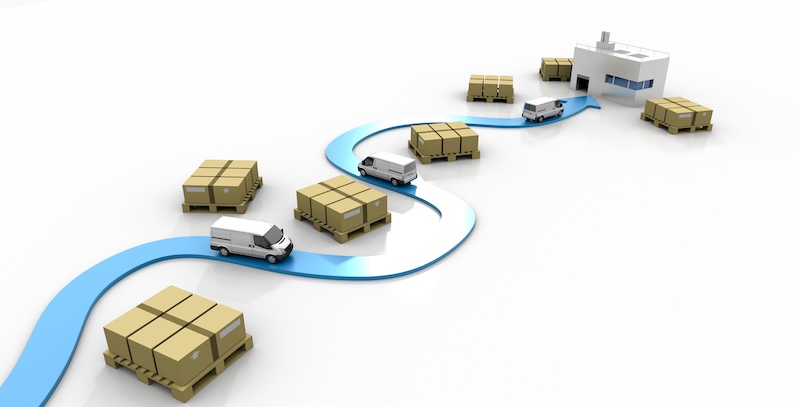
How IBC Pooling Logistics Can Cut Your Industrial Container Costs by 40%
Industrial operations face mounting pressure to optimize supply chain costs while maintaining operational efficiency. One of the most significant opportunities for cost reduction lies in rethinking your approach to intermediate bulk containers (IBCs). Through strategic pooling logistics, manufacturers and distributors can achieve substantial savings—often reducing container costs by up to 40%—while streamlining their operations.
Understanding IBC Pooling Logistics
Pooling logistics represents a fundamental shift from traditional container ownership models to shared-use systems. Instead of purchasing IBCs outright, companies access containers from a managed pool when needed, returning them after use for cleaning, inspection, and redistribution. This circular approach transforms IBCs from capital expenditures into operational expenses while maximizing asset utilization across multiple users.
The pooling logistics model works particularly well for IBCs because these containers follow predictable usage patterns. Companies typically need containers for specific shipments or production cycles, after which the containers sit idle until the next use. By sharing this capacity across multiple businesses, pooling systems eliminate waste and reduce the total number of containers required industry-wide.
The Financial Impact of Pooling Logistics
The 40% cost reduction potential stems from multiple financial advantages inherent in pooling logistics systems. Traditional IBC ownership requires significant upfront capital investment, with standard containers costing $150-$300 each depending on specifications. When companies purchase containers, they also absorb ongoing costs for storage, maintenance, cleaning, and eventual disposal.
Pooling logistics transforms this cost structure by distributing expenses across actual usage rather than ownership. Companies pay only when they need containers, eliminating idle asset costs. Additionally, professional pool management includes cleaning, maintenance, and quality control services that would otherwise require internal resources or third-party contracts.
Transportation costs also decrease through optimized logistics networks. Pool operators maintain strategic distribution points, reducing empty container movements and providing local access to clean, inspected IBCs. This geographic optimization can reduce transportation costs by 20-30% compared to managing private container fleets.
Operational Advantages Beyond Cost Savings
While cost reduction drives initial interest in pooling logistics, operational benefits often provide equally compelling value. Pool systems eliminate the administrative burden of container ownership, including tracking, maintenance scheduling, and compliance documentation. Companies can redirect these resources toward core business activities rather than container management.
Quality control represents another significant advantage. Professional pool operators implement standardized cleaning and inspection protocols that exceed typical in-house capabilities. This consistency ensures product integrity and reduces contamination risks that could result in costly product recalls or quality issues.
Scalability becomes seamless with pooling logistics. Companies can adjust container quantities based on seasonal demand, market fluctuations, or business growth without the constraints of fixed asset ownership. This flexibility proves particularly valuable for businesses experiencing rapid expansion or seasonal variations in production volumes.
Selecting the Right Pooling Logistics Partner
Success with pooling logistics depends heavily on choosing the right service provider. Evaluate potential partners based on their geographic coverage, ensuring adequate container availability in your key markets. Network density directly impacts service levels and transportation costs, making local presence essential for optimal results.
Container quality standards vary significantly among pool operators. Assess cleaning protocols, inspection procedures, and container age policies to ensure they meet your product requirements. Some industries, such as food and pharmaceuticals, require specialized cleaning capabilities that not all providers offer.
Technology integration capabilities should align with your operational needs. Modern pooling logistics providers offer tracking systems, inventory management tools, and reporting capabilities that integrate with existing enterprise systems. These digital tools enhance visibility and control while reducing administrative overhead.
Implementation Strategies for Maximum Impact
Successful pooling logistics implementation requires careful planning and phased execution. Begin with a comprehensive analysis of current container usage patterns, identifying peak demand periods, geographic concentrations, and seasonal variations. This baseline data helps optimize pool size and distribution strategies.
Consider starting with a pilot program covering specific product lines or geographic regions. This approach allows you to validate cost savings and operational benefits before full-scale implementation. Monitor key performance indicators including container availability, transportation costs, and overall supply chain efficiency during the pilot phase.
Change management becomes critical when transitioning from ownership to pooling logistics models. Educate stakeholders about the benefits and address concerns about container availability or quality control. Clear communication about service level agreements and performance metrics helps build confidence in the new approach.
Measuring Success and Continuous Improvement
Establish clear metrics to track pooling logistics performance and ensure projected savings materialize. Monitor total container costs, including pool fees, transportation, and any supplemental container purchases. Compare these costs against historical ownership expenses to validate return on investment.
Operational metrics should include container availability rates, delivery performance, and quality incidents. Service level agreements with pool providers should specify minimum performance standards for these critical areas. Regular performance reviews help identify improvement opportunities and ensure service levels meet business requirements.
Consider environmental impact metrics as well, as pooling logistics typically reduces overall container production and waste generation. Many companies find that sustainability benefits provide additional value beyond direct cost savings, supporting corporate environmental initiatives.
Arena Products understands the complexities of modern supply chain management and the importance of optimizing container logistics costs. Our expertise in industrial container solutions positions us to help you evaluate pooling logistics opportunities and identify the optimal approach for your specific requirements.
Contact us today to request a quote or speak with an expert!